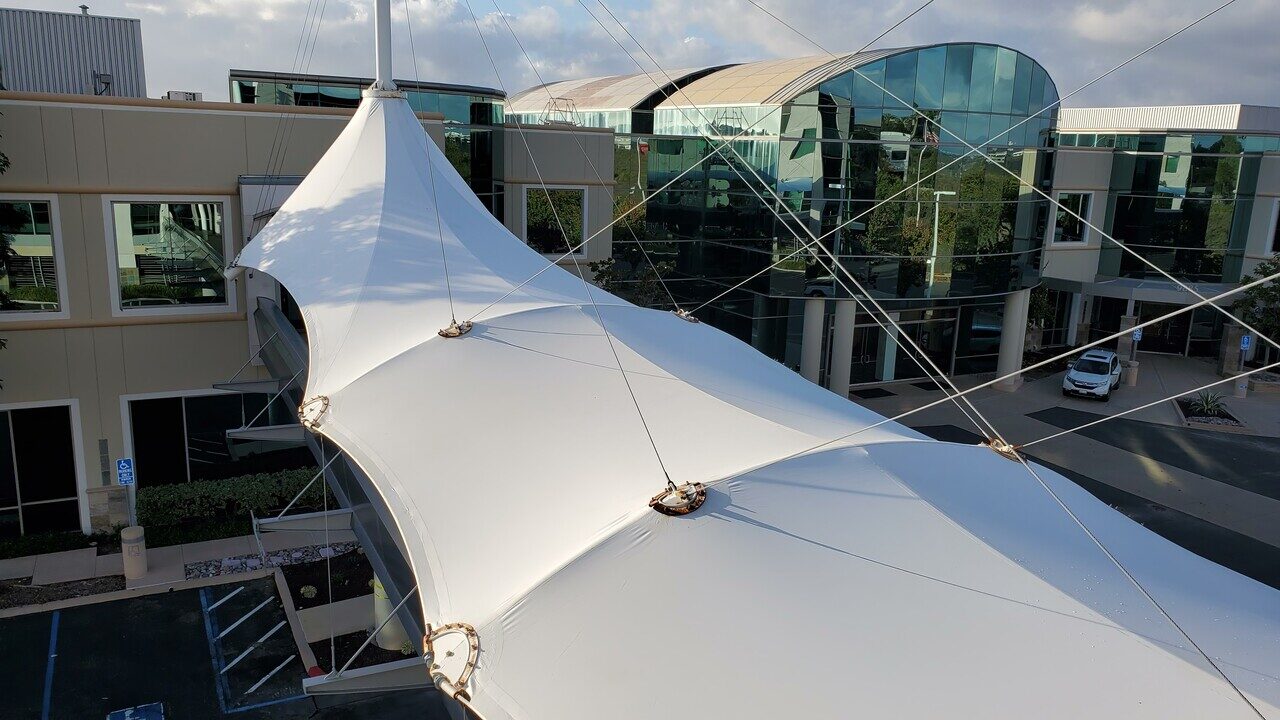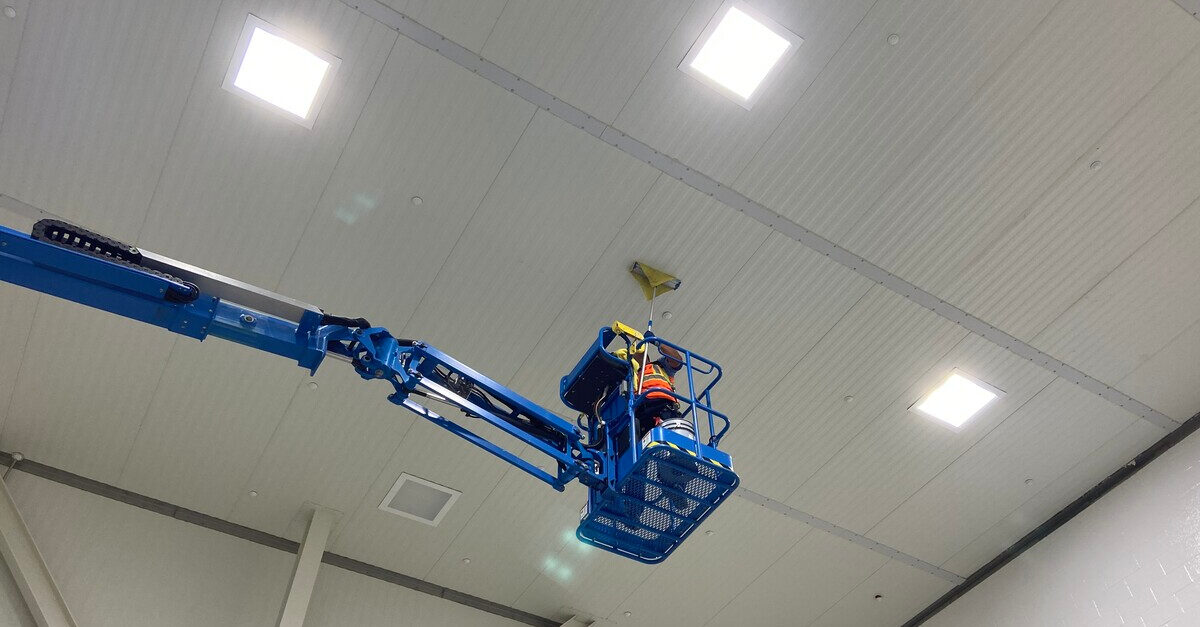Understanding Regulations & Compliance with Drone Cleaning Solutions
Drone cleaning for windows and façades is an innovative solution that brings safety, speed, and cost-efficiency to building maintenance. As this technology becomes more widely adopted, it’s important to understand the strict regulations that govern its commercial use.
Any commercial drone cleaning service must comply with the Federal Aviation Administration (FAA) Part 107, airspace restrictions, and local permit requirements. This guide unpacks the legal landscape, helping you navigate compliance, avoid uncertified providers, and choose a fully insured, legally compliant drone cleaning service.
FAA Compliance – Meeting Part 107 Requirements
Drone cleaning is revolutionizing the industry, offering a safe, efficient solution for hard-to-reach buildings. However, operating drones commercially comes with strict regulations. Understanding FAA Part 107, airspace restrictions, state and local permitting, and key safety considerations is essential to ensure compliance and mitigate risks.
What is FAA Part 107?
The FAA’s Small Unmanned Aircraft Systems (sUAS) Regulations, known as Part 107, govern commercial drone use in the U.S. This rule applies to all drones less than 55 pounds and sets strict guidelines for their operation.
How to Obtain a Remote Pilot Certificate
To legally operate a drone for window and façade cleaning, pilots must hold an FAA Remote Pilot Certificate under Part 107. There are two paths to get certification:
Option 1: Aeronautical Knowledge Test (New Pilots)
- Obtain an FAA Tracking Number (FTN) through the Integrated Airman Certification and Rating Application (IACRA) system.
- Schedule and pass the 60-question exam at an FAA-approved center.
- Submit FAA Form 8710-13 and undergo a TSA background check.
- Renew every 24 months by taking recurrent training or passing a knowledge test.
Option 2: Existing Part 61 Pilot Certificate Holders
- Must have completed a flight review in the past 24 months.
- Required to complete an FAA online sUAS training course.
- Must also apply through IACRA and pass a TSA background check.
By hiring a certified and insured drone cleaning provider, property managers, building owners, and engineers ensure safe, compliant, and professional facade and window cleaning operations while avoiding potential liabilities associated with uncertified operators.
Operational Restrictions 101
Understanding operational restrictions is crucial for safe, compliant drone window and façade cleaning. FAA regulations classify airspace into different categories, with Class B, C, D, and E airspace requiring prior FAA authorization to operate. Restricted zones —like military bases, critical infrastructure, and most national parks— are completely off-limits. In addition, while drones are typically allowed to fly up to 400 feet above ground level (AGL), cleaning drones are limited to 150 feet AGL due to their weight.
Urban environments add another layer of complexity. High-density downtown areas can interfere with radio frequency (RF) signals, potentially disrupting drone control. Furthermore, pedestrian safety concerns may limit when and where drone cleaning can be conducted.
Operational safety is another key factor. Drones must stay within the operator’s visual line of sight (VLOS), and flights over people or moving vehicles require special FAA waivers. In most cases, drone cleaning is restricted to daylight hours unless the drone is equipped with anti-collision lighting for twilight operations. Failure to follow these rules doesn’t just risk fines — it endangers public safety and building assets. That’s why choosing a drone cleaning provider with full FAA certification, local permits, and a proven safety record is essential to ensuring a smooth, compliant, and risk-free operation.
State & Local Permits – Compliance Beyond FAA
Beyond FAA regulations, state and local governments can enforce additional compliance requirements for drone cleaning. Some jurisdictions mandate commercial drone permits, adherence to noise regulations, or even environmental impact assessments before takeoff. For example, in New York City, commercial drone operations are prohibited without special city approval, making local compliance essential. Most states also require commercial drone insurance, though liability coverage minimums vary.
Choosing a provider that understands and meets these requirements is crucial to avoiding fines, project delays, or liability risks. We go beyond federal standards, securing all necessary permits and maintaining comprehensive aviation insurance. This ensures that property managers, building owners, and engineers can confidently integrate drone facade and window cleaning into their maintenance plans — without the risk of non-compliance. Before hiring a drone cleaning provider, confirm they have the proper licensing, insurance, and permits to ensure safety, compliance, and peace of mind.
Legal & Compliance Risks of Noncertified Operators
Hiring an unlicensed drone operator to use a drone for exterior building maintenance isn’t just a bad business decision — it’s a legal and financial risk. The FAA can issue hefty fines— up to $75,000 per violation—for businesses that engage in unsafe or unauthorized drone operations, and $27,500 for unregistered drones. Worse, if an accident occurs, property owners may be held liable for damages, and most insurers refuse to cover incidents involving non-FAA-licensed operators. To avoid these risks, watch for red flags when selecting a provider.
A reputable drone cleaning service should have a valid FAA Part 107 license, conduct on-site safety evaluations, and carry aviation insurance. Be wary of companies making unrealistic claims, like cleaning a 20-story building in a single day, or those lacking compliance with FAA, OSHA, and local regulations. Choosing a certified, insured, and safety-focused provider not only ensures compliance but also protects your property, tenants, and bottom line. Don’t gamble on an unlicensed operator— choose safety, professionalism, and compliance.
Partner with Trusted Experts in Drone Cleaning
Drone cleaning is revolutionizing building maintenance, offering a safer, more efficient alternative to traditional methods — but compliance is key. FAA Part 107 regulations, airspace restrictions, and state and local permit requirements must be followed to ensure a legal, risk-free operation. Hiring an unlicensed provider can lead to hefty fines, liability issues, and safety hazards.
That’s why property managers and building owners should trust our certified experts. Our FAA Part 107-licensed pilots, rigorous site safety evaluations, and full aviation insurance coverage guarantee compliance at every step. With more than one year of real-world testing and a hybrid cleaning approach, we deliver exceptional results.
Ready to elevate your building maintenance? Contact us today for a demo or quote.




